
The Structure of a Residential Roof A & J Reliable, Inc.
What Are the Structural Components of a Roof? Before you approach a contractor, it pays to have a basic understanding of the anatomy of your roof. To begin, here are the principal parts making up its underlying structure: Rafters: The framework of internal beams running from the ridge (the peak) of the roof to the eave (the edge).
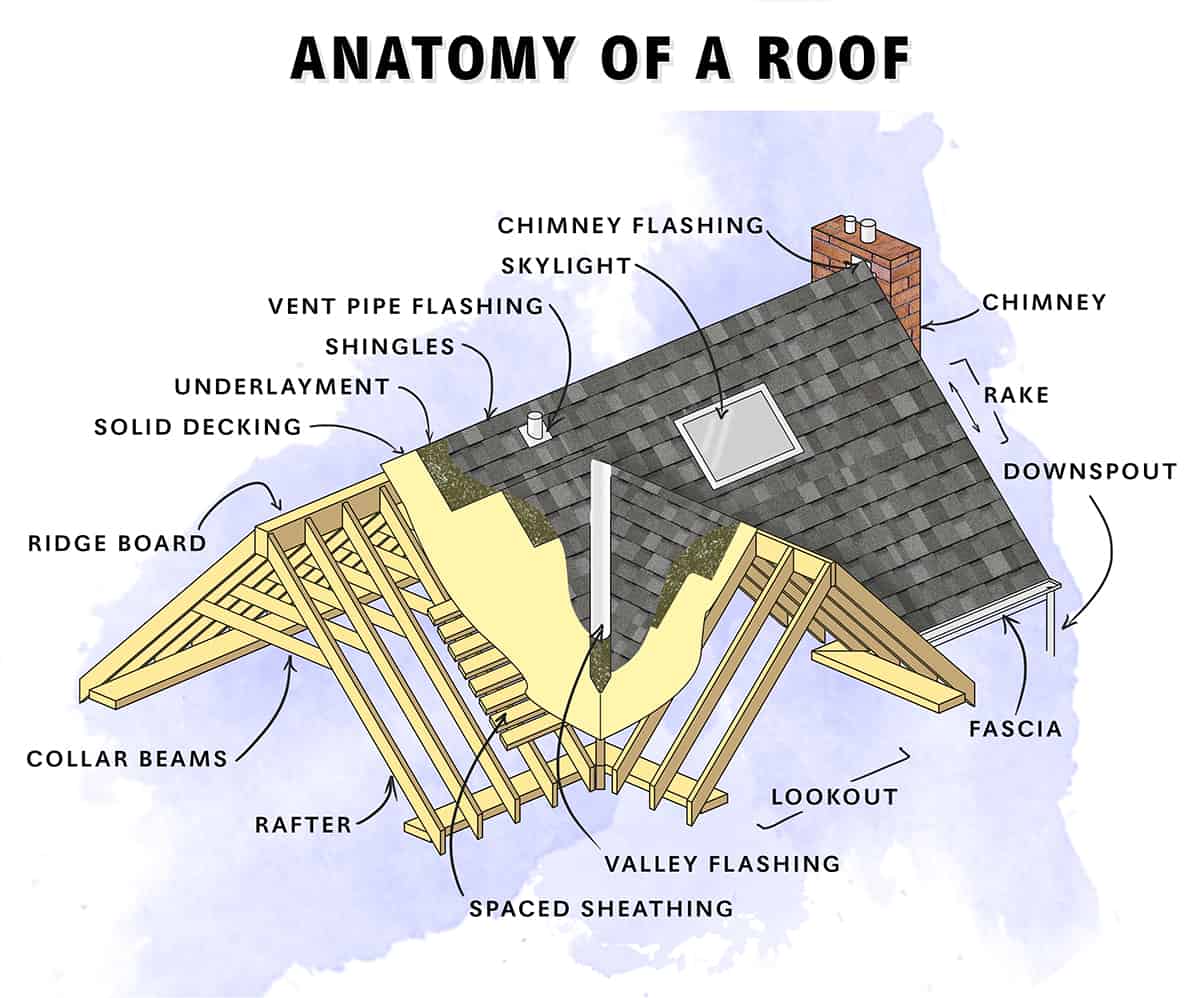
Parts of a Roof Explained (Diagram Included) Homenish
The roof is an essential part of the building envelope it covers the topmost portion of the house or building and the roof is supported on the wall of the house. There are different parts of Roof such as Cornice, Counter Flashing, Course, Eaves, Flashing, Gable, Hip, Fascia, Felt, Joist, etc.
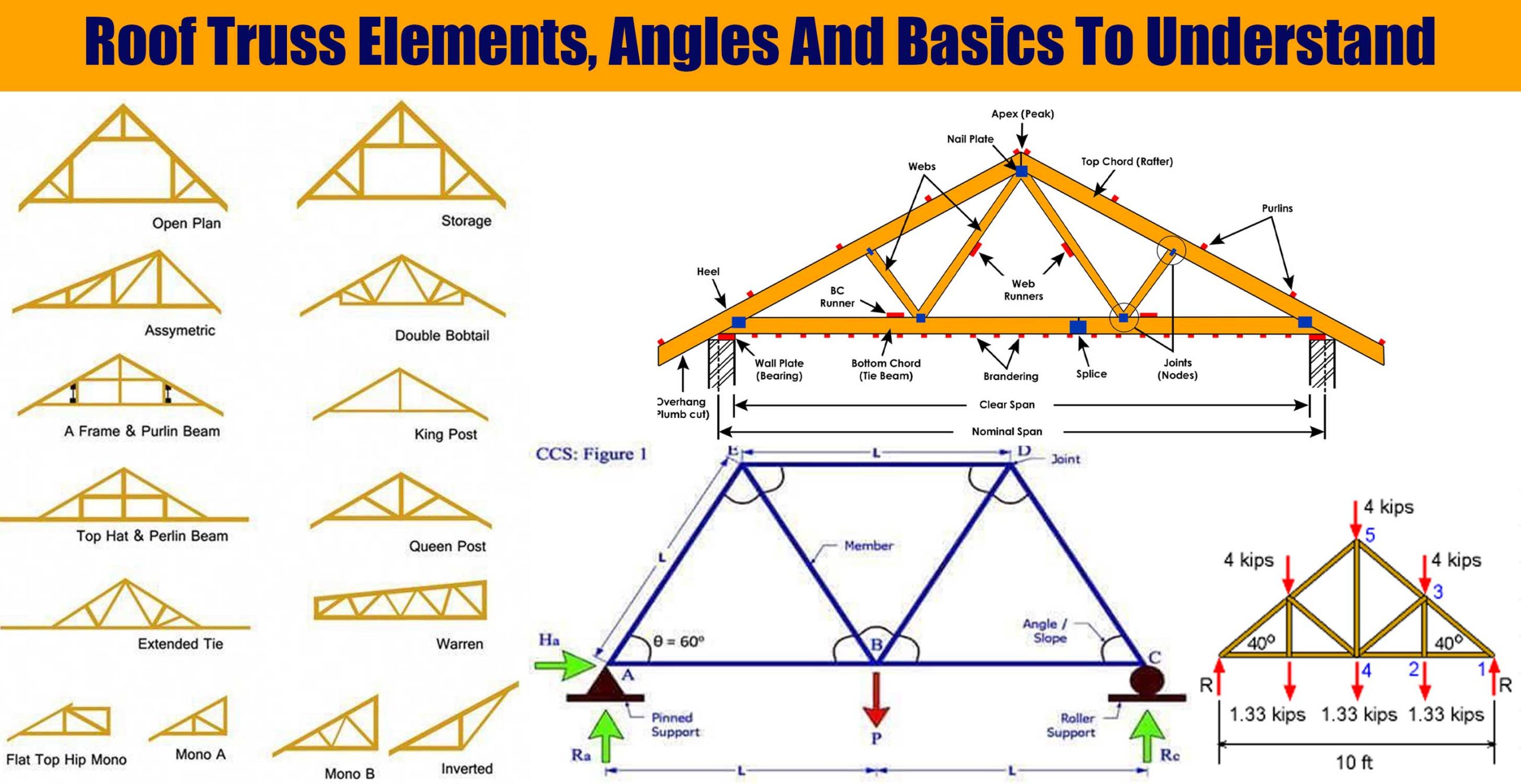
Roof Truss Elements, Angles And Basics To Understand Engineering Discoveries
2. Drip edge. Drip edge is metal flashing installed at the roof's edges (eaves and rakes) to keep water away from your fascia and from getting underneath your roofing components. Without drip edge, water gets behind your gutters and leads to both your fascia board and roof decking rotting out.

General Roofing Terminology Below you will find the major roof components illustrated and briefly
What Are the Parts of a Roof? (2024 Guide) Compare quotes from local roofing experts. GET QUOTE Abutment Attic Battens Chimney Flashing Collar Beam Decking/Sheathing Dormer Downspout Drip Edge Eave Fascia Flashing Flat Roof Gable Gable End Gutter Hip Hipped Edge Ice and Water Shield Joists Rafters Rake Ridge Roof Covering Skylight Soffit Trusses

20 Important Parts of a Roof (And How They Protect Your Property)
The sheathing is an essential component of the roof structure, providing a solid base for the other roofing materials. It is commonly made of plywood or oriented strand board (OSB) and is installed over the roof rafters or trusses. The thickness of the sheathing depends on factors such as the spacing of the rafters and local building codes.
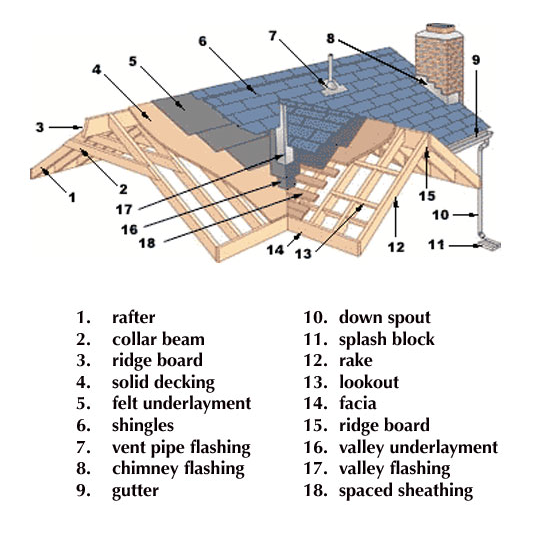
Anatomy Of A Roof Diagram / Anatomy of Roofing Anatomy
1. Gable Roof Of the numerous roofing structures available, the gable roof — also known as the pitched or peaked roof — is one of the most common options on the market. The term "gable" comes from the triangular point that forms when the two angled surfaces of the roof meet.
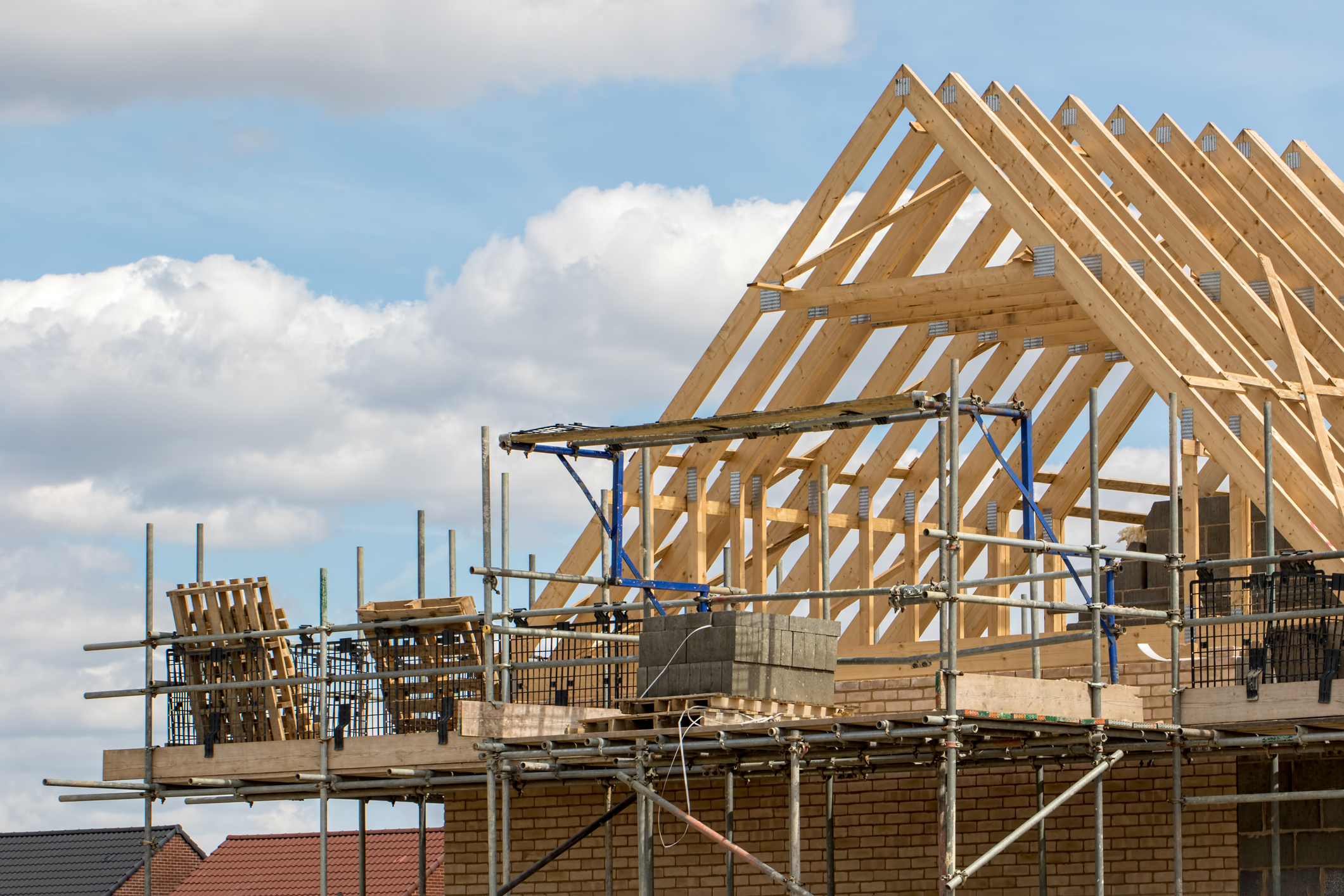
How to Build a Roof A Stepbystep Guide Homebuilding
The truss is a triangular shape that consists of channels, angles, plates, and eye bars. Moreover, it is made of lightweight materials such as 2x4's. They are pre-fabricated in a factory and shipped to the construction site. It comprises three parts, including top chords, bottom chords, and webbings or posts.

Better Understanding Your Roof Anatomy Ranch Roofing
Eaves are the edges of a roof, typically overhanging the vertical exterior walls of a building. They consist of fascia, soffits, and drip edges. Then there is the finishing layer on top of the roof. The sheathing consists of boarding—either plywood or particle board—that is laid on top of the truss. It adds structural integrity to the frame.

Roofing Descriptions
Roof framing is the crowning step in building the structure of a house. Properly framing a roof is crucial to protect the house, provide drainage for rainwater, make space for insulation and more. This guide reviews the essentials of roof framing, including the major types of roofs, whether to make rafters or trusses and how to build a roof.

timber roof terms
Roof Deck: The roof deck is the structural foundation base for the roof system and is usually made of wood or plywood. Roofing Underlayment: Roofing underlayment is a layer of material, usually synthetic or felt, that adds extra protection on top of the roof deck and under the shingles.
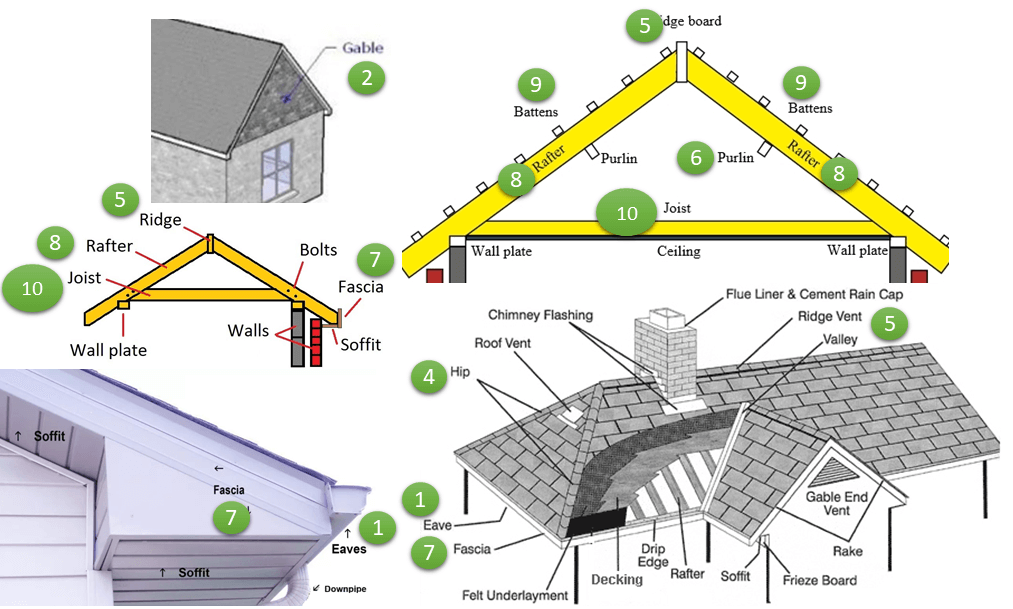
What is Pitched Roof? Parts and Types of Pitched Roof Civil Engineering
23 September 2021 A roof may look like a simple structure on top of a building, which keeps out rain and other weather, but there's far more to it than that. In this guide, we'll teach you about the internal and external parts of a roof, what they do, and their names. Each part of a roof's structure plays an important part in keeping it safe.

Roof Diagram JLC Construction Jacksonville General Contractor
There's an entire science behind its structure. Unlike people, your roof doesn't have a beating heart, blood, or veins. If it does, I'd consider contacting your local exorcist. However, for those with a standard roof, it still has its anatomy just like we do. Its anatomy can vary from roof to roof just as from person to person, but it.

Roof Framing Diagram Esma
There are three major elements to the design of a roof: the material, the construction, and the durability of the structure. Picking materials is probably the most complex decision you'll have to make due to the wide array of choices available to you.
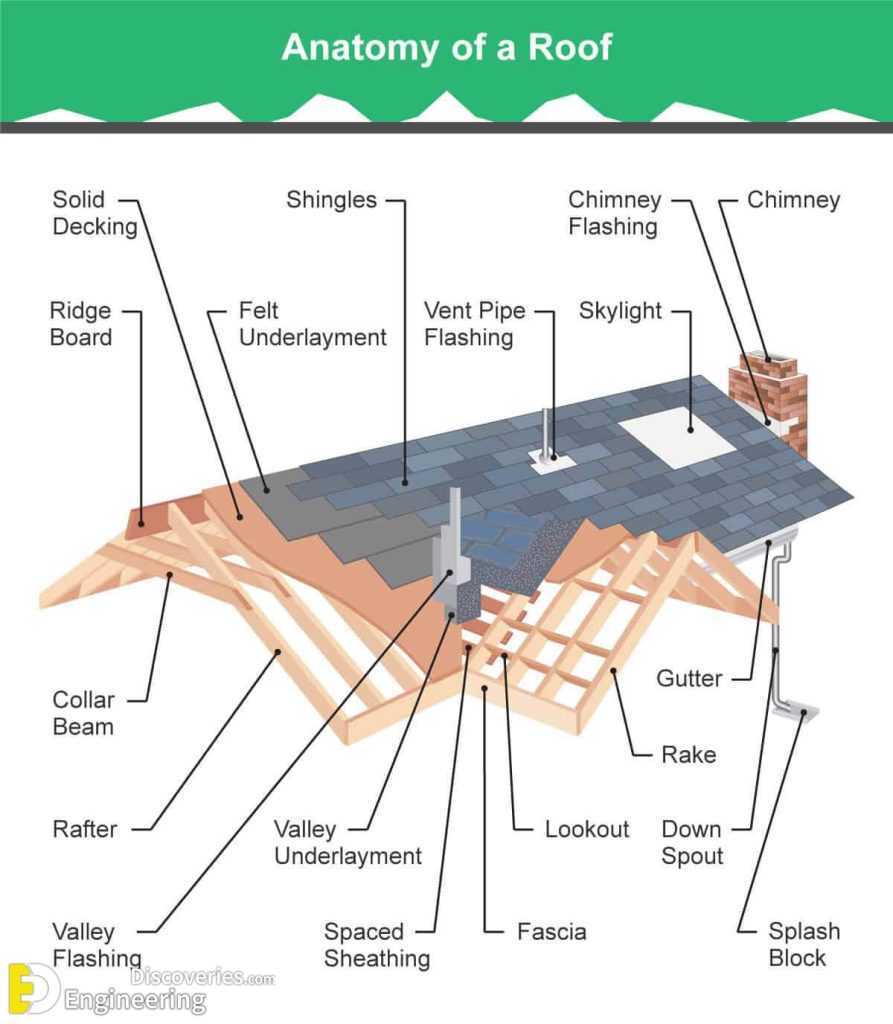
Roof Truss Elements, Angles And Basics To Understand Engineering Discoveries
Usually made from 1⁄2-inch plywood, the decking closes and reinforces the roof structure and provides a nailbed for the shingles. Under the Quebec Construction Code, certain kinds of particleboard are also authorized. Roof edge (or eaves edge) All the boards running along the edge of the roof or eaves. Also known as a fascia. Attic
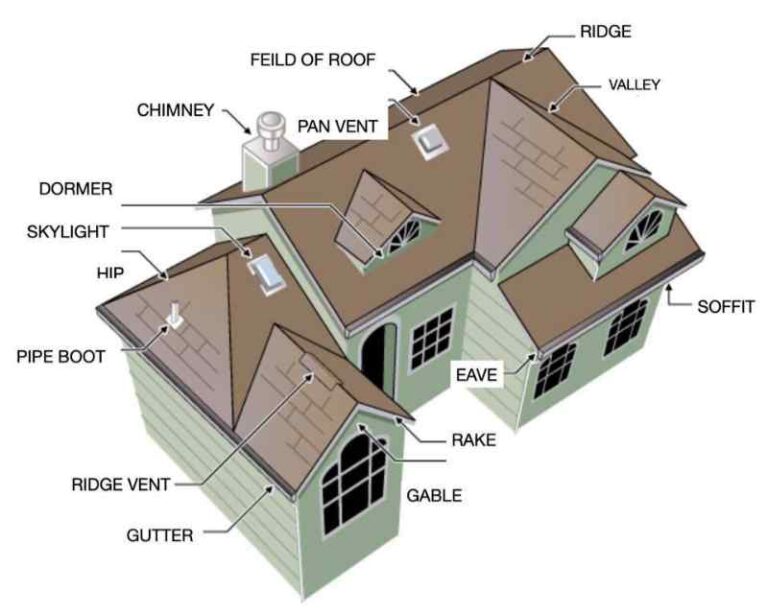
Basic Parts of a Roof Learning Roof Structure Terminology Roof Lux
1 Choose your roof style. There are hundreds of roof types out there, and they are all suitable for different purposes and allow for different materials. The two major categories of roof are flat and pitched, [1] and one of the main things that will determine the actual style of roof you need is the shape of the building.

Learn about roof parts and their location in roof construction
A roof ( pl.: roofs or rooves) is the top covering of a building, including all materials and constructions necessary to support it on the walls of the building or on uprights, providing protection against rain, snow, sunlight, extremes of temperature, and wind. [1] A roof is part of the building envelope .